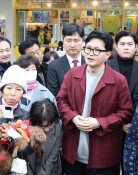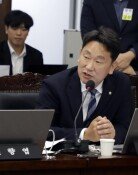[Editorial] Doubts Over Balanced Regional Development
[Editorial] Doubts Over Balanced Regional Development
Posted July. 22, 2008 09:07,
The government announced yesterday that it will continue the basic decentralization plan pushed by the previous administration, including the setup of innovative cities and further deregulation in metropolitan areas, when the effects of regional development are tangible. This was in stark contrast to the pledge made about three months ago right after the Lee Myung-bak administration took office. The new government said at the time that it would review the regional development plan and make revisions. The innovative city plan was one of former President Roh Moo-hyuns key policies designed to relocate 125 state-owned firms to 10 provincial areas at a cost of 43 trillion won (43 billion U.S. dollars).
Unfortunately, audits discovered that his administration exaggerated the projects expected benefits to proceed with the plan.
The Lee administration has also postponed its major campaign pledge of easing of restrictions on Seoul and vicinity. The incumbent government originally intended to deregulate metropolitan areas in the belief that promoting regional development without deregulating the central area would not benefit national competitiveness. In the face of strong resistance from provincial governments, the plan is likely to end up in smoke.
Though the government says the plan will create a win-win solution for the Seoul metropolitan area and provinces, it is a virtual copy of the previous administrations policy on balanced regional development. A government source said, It isnt following the footsteps of the former governments innovative city plan or revising measures. Such a vague explanation also suggests the reason behind the abrupt shift in policy. In other words, the candlelight rallies have given the Lee administration cold feet in the face of a daunting challenge, especially when its plans are bound to raise more controversy.
Nobody opposes policies aiming at advancing less developed regions, but chances are high that just moving public firms to the provinces at great cost cannot guarantee their efficiency and the revival of innovative cities. Privatization of public firms requires a thorough framework on relocating state-run companies to the provinces, something which the incumbent government has failed to show a willingness to do.
Deregulation of metropolitan areas was a pet phrase in the presidential campaign of Lee Myung-bak. The presidential office of Cheong Wa Dae has since changed its mind, saying it will deregulate in Seoul and vicinity in accordance with progress in regional development measures. Deregulation in these areas will hardly materialize if it waits until the regional economy revives. A more realistic measure is to stimulate the economies in metropolitan areas and then let the effects spread to other regions.
Gyeonggi Province complains that regulations have prevented 25 trillion won of corporate investment in the area. Shame on the Lee administration for turning a deaf ear to the public outcry of economic burden and doing nothing about key regulations preventing economic recovery. How then can this government dare say it wants to save the economy?







